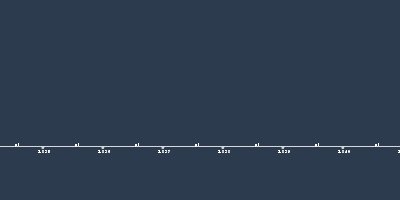feb 23, 2022 - Understanding the psychology of denial
Description:
Why We DenyDenial is based on one very specific desire – for something to not be true.
“If you're in denial, you're trying to protect yourself by refusing to accept the truth about something that's happening in your life,” the Mayo Clinic writes. “Denial is a coping mechanism that gives you time to adjust to distressing situations — but staying in denial can interfere with treatment or your ability to tackle challenges.”
Hearing What You Want
With denialism pervasive in any number of spaces, it’s valuable to know that, in general, a person’s political, religious, or ethnic identity has been found to impact their willingness to accept an expert’s take on a given issue.
So what happens when scientific consensus conflicts with someone’s established ideological worldview? They don’t want to believe it – and often seek out information to disprove it. And the Internet being the Internet, they often find exactly what they are looking for.
Social scientists have even given the process of deciding what evidence to accept based on the conclusion one prefers a name: “motivated reasoning.”
When people come to a conclusion based not just by examining facts but also driven by an unconscious bias, their view of what’s “true” may be skewed – but it doesn’t make it any less true to them.
>> Click here to learn more about two psychological concepts that help explain why people ignore the science behind the climate crisis. <<
The Myth of Disagreement
Remember, more than 99% of publishing, peer-reviewed climate scientists agree that our climate is changing, and they know those changes are the result of our burning of fossil fuels for energy.
With that in mind, it’s hard to not believe that those in denial really do know the truth at some level. But what if that fact about overwhelming scientific consensus never reached your ears?
“My fear is that we now live in this hyper-partisan media atmosphere, where people are increasingly sort of syphoned off in silos and they get their information from media outlets that simply reinforce their preconceptions and biases,” Dr. Michael Mann, distinguished professor of atmospheric science at Penn State University and the inspiration for Leonardo DiCaprio’s character in “Don’t Look Up,” the polarizing-if-enormously popular (Ed. note: We loved it.) film about, well, climate denial, told Climate Reality in 2017.
“We have to get past this fake debate about whether the problem exists because that is an unworthy debate, and anyone who adheres to the notion that climate change is a hoax or that it isn’t caused by us or even that it’s not creating problems already is on the wrong side of science and the wrong side of history,” he continued.
But they didn’t get there on their own. A sprawling network of talking heads, “think tanks,” and front groups telling everyone who will listen that they have nothing to worry about helped them along.
It’s not easy to shape public opinion when the facts are against you. So, the fossil fuel industry simply began attacking the facts, creating an alternate universe where decades of rising CO2 and rising temperatures had nothing to do with each other and scientists who claimed otherwise were alarmists or had ulterior motives – and were not to be trusted.
As the Washington Post explains, “in the 1990s, oil companies, fossil fuel industry trade groups and their respective PR firms began positioning contrarian scientists such as Willie Soon, William Happer and David Legates as experts whose opinions on climate change should be considered equal and opposite to that of climate scientists.”
Thus, in denial, people find a world where nothing can be taken for granted as true. If “they” – the grand “they” – can’t be trusted and you are being constantly lied to, or at the very least people really aren’t 100% sure about the problem, perhaps there is nothing to acknowledge at all.
“This picture is a bit grim, because it suggests that facts alone have limited power to resolve politicized issues like climate change or immigration policy,” the Conversation writes. “But properly understanding the phenomenon of denial is surely a crucial first step to addressing it.”
Indeed.
What You Can Do
Climate change is already happening. How much the climate warms in the future is up to us. All of us.
Together, we can build pressure on federal officials to take bold climate action, join forces with fellow environmental advocates to work in coalition and win, and make sure all of our voices are heard in demanding a cleaner, greener future.
It Starts with a Conversation
When you talk, your friends and family listen – even (sometimes especially) when they disagree with you. That’s why talking about the facts of the climate crisis is one of the best ways to take climate action.
Whether it’s at the grocery store, after church, or over lemonade at a family picnic, talking about the reality of the climate crisis is your chance to change minds and ensure the people you care about hear the truth.
Give Them The Facts
Added to timeline:
Date:
feb 23, 2022
Now
~ 3 years and 3 months ago
